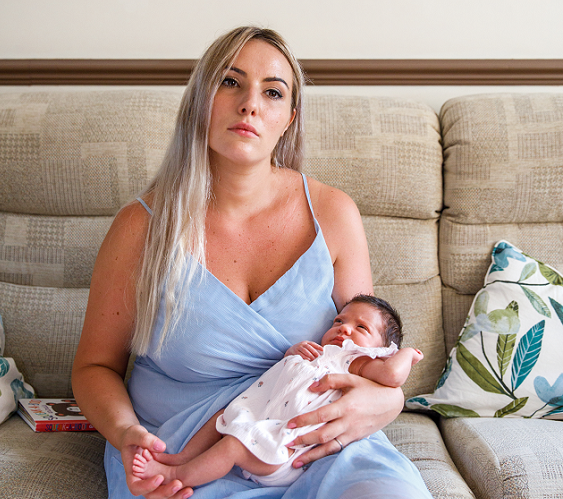Depression in pregnancy
Most people have heard of postnatal depression, but did you know you can also experience antenatal depression- feeling sad, tearful, irritable, losing interest in yourself or things you normally enjoy?
Pregnancy can be an emotional time and it might feel confusing. You might worry that you are having difficult feelings, rather than being excited and happy about having a baby.

What you can do to help
Talk to someone about how you are feeling. This may be your partner, a close family member or a friend, your GP, health visitor or midwife. Getting extra support during pregnancy can make a big difference.
Try to establish a daily routine, getting enough rest and sleep as well as time to do something for yourself, even if it’s just having a cup of tea, or a soak in the bath.
Spend time each day connecting with your baby.
Try to get some gentle regular exercise, or try meditation, mindfulness or deep-breathing.
Keep to a healthy diet, stop smoking and reduce your alcohol intake – you’ll be surprised how much difference this makes
Find out what is happening locally so that you can meet other expectant parents and feel less isolated.
Join online chat groups or support groups to find others who can share your experiences.
Baby blues and baby pinks
In the first week after having a baby, you may experience what’s known as the ‘baby blues’. You might feel a bit down, tearful, emotional, anxious or irritable. Or you may be feeling slightly euphoric (excited) about being a mum, find yourself talking more than usual and not feeling you need to sleep. This is what is sometimes called ‘baby pinks’.
These changes in mood are likely caused by the sudden changes in hormones and chemicals that happen to your body after birth. They are very common, all the symptoms are normal and usually only last for a few days.
So what happens when you don’t start to feel better after 10 days? In a small number of women, if by about 14 days post birth things have not returned to normal, it may be because you have a low blood count (anaemia) or a problem with your thyroid. These can mimic signs of postnatal depression.
You will be having visits and phone calls from your midwife and health visitor in the days after birth. They will ask about your physical recovery from birth, but also about how you are feeling in yourself. If you are worried that you are ‘just not yourself’ it is important to discuss this with them. They may advise you to see your GP for blood tests and a physical check-up to rule out any underlying reasons.
Postnatal depression
Once you have had all your physical tests done by the GP and everything appears normal it may be time to think with your GP about the possibility that you may have postnatal depression.
If you continue to feel quite low in mood, tearful, restless, sad, lacking in energy, losing interest in the things you normally enjoy, or other things which are not normal for you then you should act. Often our family or friends may notice things don’t seem ‘quite right’ but can’t quite put their finger on what’s different about you.
If you have postnatal depression it doesn’t mean you’re a bad parent. It’s not anything that you have done or failed to do. Quite simply postnatal depression happens more often than you may think and is often linked to that drop in hormones when the baby is delivered.
There is lots of support for postnatal depression including:
The really important message here is if you think this is you then speak to your health visitor, midwife or your GP so they can help you.
